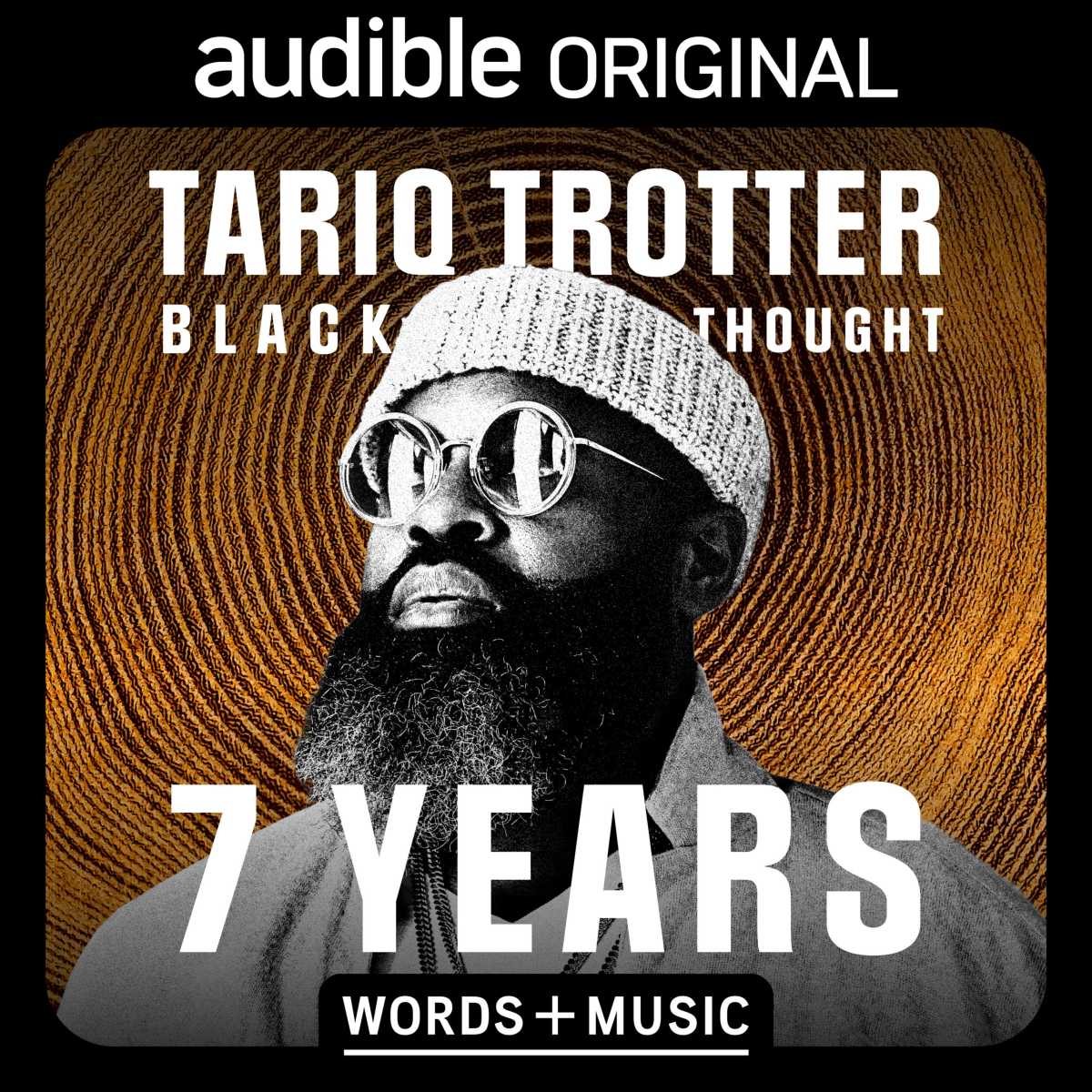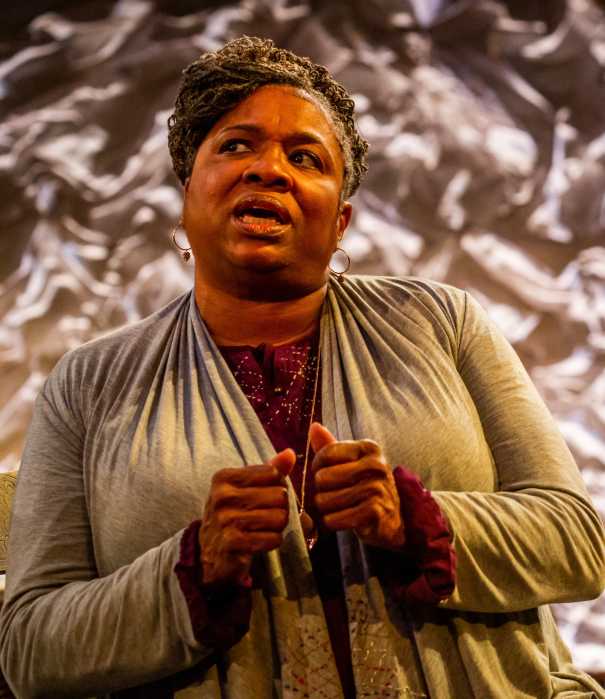If Philly needed a voice, Tariq Trotter is here to be one.
As the lead MC and co-founder of The Roots (the Philadelphia hip-hop band created with Questlove in the late 80s), a native to the city, an actor and a lover of the art of storytelling, the artist also known as Black Thought has a way to project his voice and story in the city and beyond through words and music.
In ‘7 Years’, Trotter’s new Words + Music with Audible, the prolific rapper examines his life and career in seven-year increments. The online audiobook and podcast service has produced the Words + Music concept as an Audible Original with other artists on their platform (essentially it’s an audio memoir with a musical score and for ‘7 Years’ Trotter helped to create both), but for Trotter, this specific work examines his life growing up in Philadelphia, his career and beyond—all in his own words and perspectives.
Trotter first heard of the platform and what they could offer with this specific format through legendary producer T-Bone Burnett, and he was immediately interested given his background in expressing emotions and relaying feelings through art, or, in fewer words—storytelling. It’s that walk down memory lane that evoked much more than just memories, it also provided the artist with some truth, and ultimately, a voice for others to hear.
Black Thought sat down to discuss why this project was meaningful for him, how he has seen the city both change and stay the same, and what he hopes can be taken away from ‘7 Years’ if you just take the time to listen.
What is your favorite part about storytelling?
For me, the strength of story-telling is what makes for a great piece of art—drawing, painting, poems or song. It’s all about the ability to convey an energy and emotion and to impress [them] upon the beholder. I’ve just always have been impressed by people who have mastered that. That’s why I’ve always been drawn to the arts. The power of song is universal, and a strong lyricist or storyteller is going to be transcendent. You’re going to be able to transcend the barriers of language and speak to people on a spiritual level. I’ve always felt that. Soul music, blues, gospel, the spiritual music and all of their derivatives—[that goes for] the best hip-hop, the best RnB and everything in between…In a deeper more visceral sort of way at their essence is about being able to a story. Country Western music and everything is about storytelling.
What was the process of getting this all together for you like?
The preparation process was about taking a deep, emotional dive and maybe reliving some experiences that I thought I had forgotten about. I feel like this sort of piece… you can’t cut any corners of half-ass this sort of story. I had to dig up and unpack some of that baggage. There was a lot to unpack, but it’s a beautiful thing.
During that period, did you can come to any realizations about yourself?
I think there are things that I’ve always known and the preparation for this project sort of confirmed for me. I think it’s definitely been a cathartic experience for me, but hopefully, it’s going to be relatable in many different ways and folks will be able to draw their own parallels and be compelled and inspired in their own way by it or not.
What went into creating the musical score? What does it bring to ‘7 years’ for you?
This particular music score helps people to reach a deeper understanding of what makes me the person that I am and why. When we recall, when we go down memory lane and remember life’s experiences, for many of us, we almost remember these experiences through song. We have these memories in our head, these beats and moments in time that you never sort of access. I’ve never accessed these memories without the musical accompanying it, without the soundtrack. So these are those songs that are pieces of the puzzle that sent me on my creative journey. It’s a couple of them, but then it evolves into the integral Roots songs that represent different places that we all were in life.
Growing up in Philly, how has it changed from your childhood to now?
The people have changed, [and] the ways that which we move and the way we receive information has definitely changed. But in many ways, things are still the same. When I was a young person, I began to realize that there were things that I wanted to say, and I wasn’t really able to say [it all] with just words. I used the visual arts as a conduit for expression and that led to me embracing all of the arts once I came to understand. For young people who are in it and are immersed in a certain way of life and certain experiences have been normalized in their lives without being able to recognize that it’s actually trauma that’s being done, it’s hard with no outlets to articulate your story or your perspective. I was one of the lucky ones that I had the arts. There might another lucky one who had sports or someone who had [something else.] But where I’m from, the lucky ones were fewer and further between. I’ll go a step further to say the justice system in Philadelphia and the state of PA was never on my side. I grew up cognizant of certain dangers, one being the ever-present possibility of the risk of arrest. So it makes for a different kind of experience. But that hasn’t changed. All of the stuff I was concerned about living in Philadelphia when I was a young person to my young son, my young nephew, my young relatives and family member who’s on the streets of Philadelphia right now—they need to concerned about the same stuff.
What are you hoping that people take away from ‘7 years’?
I’m hoping that people are going to take away and walk away with even just a slightly deeper understanding of the range of the human condition. The scope of the Black identity. I just want people to get it a little bit more and to get me a little bit more and to understand a little bit better the pieces of the puzzle that made me, [and] this piece of a greater puzzle that is The Roots Collective. It’s part of the deconstruction of The Roots, but it’s very necessary to deal with this chamber if you want the complete experience.
Tariq Trotter’s ‘7 Years’ drops on Audible July 8. Visit audible.com to check it out.




























